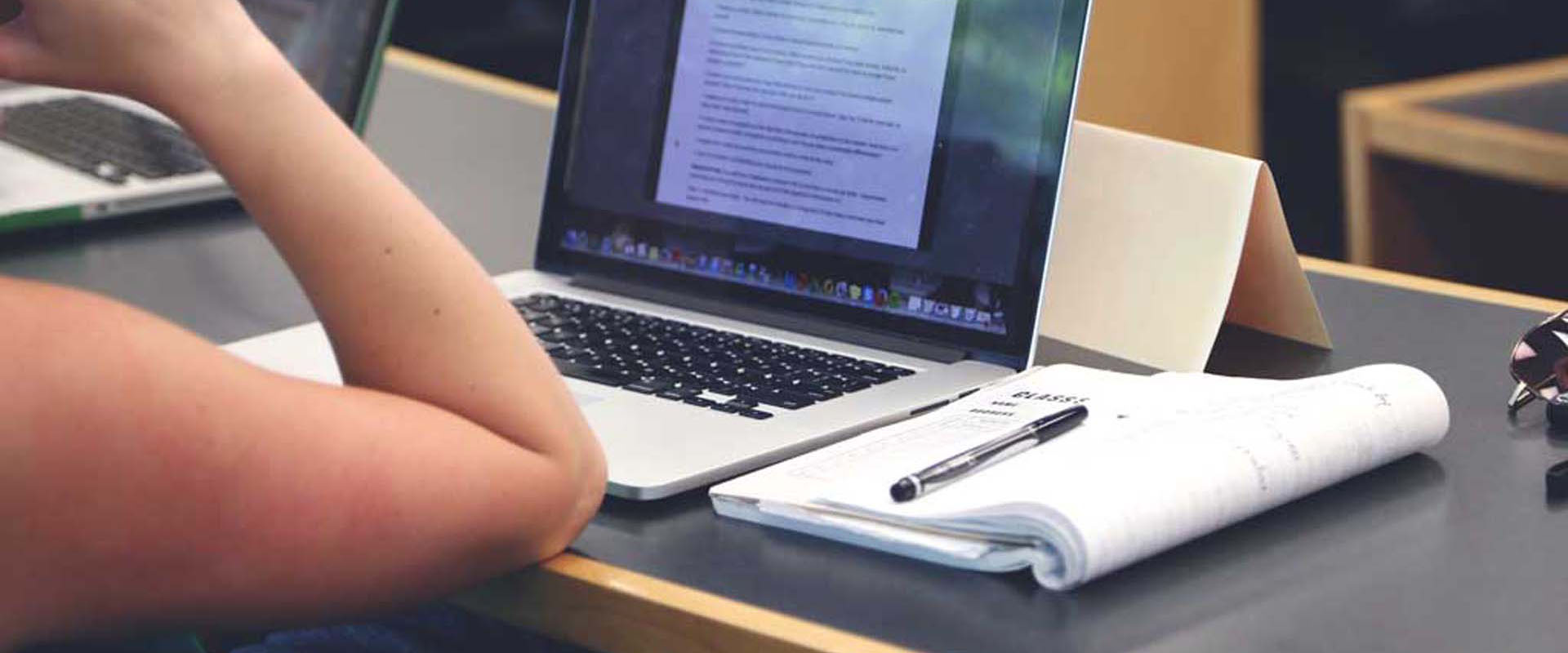The Effect of SB 820 on the Recording of Distance Learning

October 2020
Number 70
As school districts and county offices of education across California prepared to open their schools in a virtual distance learning format, electronic recording of remote instruction sessions became a topic of interest in labor negotiations. Existing law on the issue did not contemplate distance learning and the needs of students using a remote platform.
On August 22, 2020, the Legislature released the August budget trailer bills, which made a number of major changes concerning coronavirus-related legislation. One of the two August budget trailer bills, Senate Bill 820 (SB 820), provides additional guidance on the recording of instruction during distance learning. The Legislature passed SB 820 on Monday, August 31, 2020, and it was signed into law by Governor Newsom on September 18, 2020.
Prior Legal Framework
Prior to SB 820 there was minimal statutory guidance on recording classroom instruction in the distance learning environment. As distance learning became a requirement for many school districts in the counties most impacted by the effects of COVID-19, some labor unions relied on Education Code section 51512 to argue that video or audio recording of instruction without the consent of the teacher and school principal is prohibited. Section 51512, which has been in the Education Code for many years, prohibits the use of electronic listening or recording devices in the classroom without the prior consent of the teacher and principal of the school. A violation of this section by someone other than a student is punishable as a misdemeanor, while any violation by a student is subject to appropriate disciplinary action.
Although this statute seemed to explicitly prohibit recordings without consent in the classroom, its application outside of the regular in-person classroom setting, such as in the virtual classrooms made necessary by distance learning, remained unclear. Moreover, when the Legislature enacted Education Code section 51512 in 1976, it did not contemplate the integral role recording might play in the virtual format necessitated by a global pandemic.
Use of Video and Ability to Record Distance Learning
The language of SB 820 revises Education Code section 43503, which was enacted as part of Senate Bill 98 earlier this summer, and provides much needed clarity on the ability to both use video during remote learning and also to record instruction. While SB 98 authorized the use of video during distance learning, it was unclear whether recording such videos required consent or not. Education Code section 43503(d)(1) now effectively eliminates arguments against the recording of instruction for distance learning purposes, regardless of Education Code section 51512. School districts and county offices of education may now record distance learning sessions, and rightfully maintain and distribute recordings for such purpose. This would allow, for example, students who are absent from a distance learning session to access the lessons they missed.
Recordings by Third Parties
The new language does make a notable distinction by prohibiting all other recordings without teacher and principal consent. Education Code section 43503(d)(2) would prevent third party recordings, such as those created by parents and students. Should these third parties want to record distance learning lessons, they must obtain consent from teachers and principals prior to doing so.
Takeaways
As a result of SB 820, school districts and county offices of education may require teachers to record distance learning instruction, without the teacher's or school principal's permission. Such recordings, however, may only be made for distance learning purposes.
Importantly, SB 820 reaffirmed existing law that provides any recording of instruction by third parties, including parents and students, is not permitted without the consent of the teacher and principal.
In light of these changes, school districts may need to revisit any existing memorandum of understanding with a teachers' union that included considerations regarding recording of distance learning instruction.
SB 820 did not directly address any potential student privacy concerns that might arise in the context of recorded virtual classrooms. For example, issues related to student images or records included in requests for digital copies of recorded instruction, or use of recordings in disciplinary matters, should be sent to legal counsel for careful analysis.
For questions about the labor and employment or student privacy implications of SB 820, or to discuss any legal matters pertaining to public agencies, please contact the authors of this Client News Brief or an attorney at one of our eight offices located statewide. You can also subscribe to our podcast, follow us on Facebook, Twitter and LinkedIn or download our mobile app.
Number 70
As school districts and county offices of education across California prepared to open their schools in a virtual distance learning format, electronic recording of remote instruction sessions became a topic of interest in labor negotiations. Existing law on the issue did not contemplate distance learning and the needs of students using a remote platform.
On August 22, 2020, the Legislature released the August budget trailer bills, which made a number of major changes concerning coronavirus-related legislation. One of the two August budget trailer bills, Senate Bill 820 (SB 820), provides additional guidance on the recording of instruction during distance learning. The Legislature passed SB 820 on Monday, August 31, 2020, and it was signed into law by Governor Newsom on September 18, 2020.
Prior Legal Framework
Prior to SB 820 there was minimal statutory guidance on recording classroom instruction in the distance learning environment. As distance learning became a requirement for many school districts in the counties most impacted by the effects of COVID-19, some labor unions relied on Education Code section 51512 to argue that video or audio recording of instruction without the consent of the teacher and school principal is prohibited. Section 51512, which has been in the Education Code for many years, prohibits the use of electronic listening or recording devices in the classroom without the prior consent of the teacher and principal of the school. A violation of this section by someone other than a student is punishable as a misdemeanor, while any violation by a student is subject to appropriate disciplinary action.
Although this statute seemed to explicitly prohibit recordings without consent in the classroom, its application outside of the regular in-person classroom setting, such as in the virtual classrooms made necessary by distance learning, remained unclear. Moreover, when the Legislature enacted Education Code section 51512 in 1976, it did not contemplate the integral role recording might play in the virtual format necessitated by a global pandemic.
Use of Video and Ability to Record Distance Learning
The language of SB 820 revises Education Code section 43503, which was enacted as part of Senate Bill 98 earlier this summer, and provides much needed clarity on the ability to both use video during remote learning and also to record instruction. While SB 98 authorized the use of video during distance learning, it was unclear whether recording such videos required consent or not. Education Code section 43503(d)(1) now effectively eliminates arguments against the recording of instruction for distance learning purposes, regardless of Education Code section 51512. School districts and county offices of education may now record distance learning sessions, and rightfully maintain and distribute recordings for such purpose. This would allow, for example, students who are absent from a distance learning session to access the lessons they missed.
Recordings by Third Parties
The new language does make a notable distinction by prohibiting all other recordings without teacher and principal consent. Education Code section 43503(d)(2) would prevent third party recordings, such as those created by parents and students. Should these third parties want to record distance learning lessons, they must obtain consent from teachers and principals prior to doing so.
Takeaways
As a result of SB 820, school districts and county offices of education may require teachers to record distance learning instruction, without the teacher's or school principal's permission. Such recordings, however, may only be made for distance learning purposes.
Importantly, SB 820 reaffirmed existing law that provides any recording of instruction by third parties, including parents and students, is not permitted without the consent of the teacher and principal.
In light of these changes, school districts may need to revisit any existing memorandum of understanding with a teachers' union that included considerations regarding recording of distance learning instruction.
SB 820 did not directly address any potential student privacy concerns that might arise in the context of recorded virtual classrooms. For example, issues related to student images or records included in requests for digital copies of recorded instruction, or use of recordings in disciplinary matters, should be sent to legal counsel for careful analysis.
For questions about the labor and employment or student privacy implications of SB 820, or to discuss any legal matters pertaining to public agencies, please contact the authors of this Client News Brief or an attorney at one of our eight offices located statewide. You can also subscribe to our podcast, follow us on Facebook, Twitter and LinkedIn or download our mobile app.
As the information contained herein is necessarily general, its application to a particular set of facts and circumstances may vary. For this reason, this News Brief does not constitute legal advice. We recommend that you consult with your counsel prior to acting on the information contained herein.




